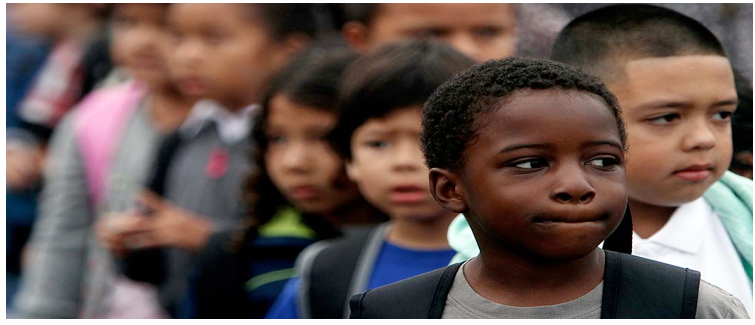HOW WE EDUCATE OUR KIDS … OR NOT—(Ed Note: As the doors swing open on another LA school year, it’s an appropriate time to ask yourself the responsible question: Will he/she learn anything this year? Long time educator Neal Wrightson offers his thoughts on the best way to make sure the answer to the question is yes.) Teaching is an art. It must be grounded in a deep and concrete understanding about how humans learn, and in the ever-deepening understanding about the many factors that affect our ability and capacity to learn. But teaching and learning happen at the point of connection between a teacher and student and then in the connection of a student to subject matter. When this is disrupted by bureaucracy and authoritarian structures, learning is diminished or disappears. When students feel that their learning is not the focus of the classroom or the work before them, they become disenfranchised and disconnected.
LAUSD, while doing so much good work, and employing many, many excellent teachers, is too big and its power is too great. Furthermore, it has been subjected to the constantly changing curriculum of a top-down national curriculum that has, by design, tied the hands of the educators who might better know the needs and particular issues of their community. As we once again watch this huge institution attempt to find a Superintendent who can inspire teachers and administrators, establish credibility with parents and politicians, and fight for the needs of more than a million children, I am struck by the futility of this task. I see that same feeling of frustration and discouragement is reflected in public school teachers across the country.
I am a dyed-in-the-wool progressive educator. I worked briefly for LAUSD and also in a couple of other public school districts, and also for a short time in a program with kids who had been referred out from public schools for behavioral/emotional issues. 35 years ago I started a small school in the San Fernando Valley, the Children’s Community School (CCS) – a non-profit progressive elementary school, located in what was formerly an old church in a low-income mostly Latino neighborhood.
Almost half of our students receive financial aid, and we have all kinds of families and all kinds of students. We do not use standardized tests, have no text books, and no grades.
I strongly believe that universal free public education is critical as the foundation of a democratic society. If we still aspire to be a democracy in this country, every child must have access to a quality education in order to be able to fulfill their responsibilities as citizens.
Being able to read a ballot, understand a ballot initiative, evaluate candidates we are asked to vote for, and to think critically about the issues put before us in an election, we must have the skills to think, to question, and to imagine how things might be better.
To work and live in a community requires skills in collaboration and compromise – two skills that appear to be in short supply these days, particularly in many of our governing bodies.
My support for public education may at first appear to be a contradiction. Supporting public education so adamantly might seem to require me as an educator to work in a public school. Some of my good friends and colleagues working in public schools question my commitment, given where I choose to work. But I am also aware that our government has a built-in dynamic tension, between the essential role of government in protecting the rights of all its citizens, and the strong inclination of all governments to consolidate power and to wield it to protect and strengthen that power. Public education has always been in the center of this struggle, never more so than it is today.
Public education needs checks and balances (as do all public institutions in a democracy). There need to be critics within the institution, and the space for them to voice their critiques, and critics on the outside who provide another perspective, and as in the case of my school, provide a very different model.
Our system of local school boards composed of lay people, and local schools responsive to the community in which they are located was a flawed but democratic system that at its best put teachers and children first. The system we have now is dysfunctional, driven by test scores and a national curriculum that dictates an unusable and unworkable curriculum and leaves no room for those skills – needed by every citizen – mentioned above: critical thinking, thoughtful reflection, collaboration, and compromise.
What is needed is political leadership. Our elected officials must speak up for children, as so many did in the past (John Vasconcellos, Wilson Riles, Bill Honig, Delaine Easton come to mind).
No Superintendent, no matter how courageous, can make a difference without political support. No teacher will be able to practice their craft effectively if the administration continues to operate using an authoritarian model, and cannot or will not provide the support and protection from bureaucratic interference.
The art of teaching, so critical to an educated body politic, must be cultivated and valued at all levels of government and governance.
(Neal Wrightson is a lifetime educator and head of Children’s Community School in Van Nuys. He writes for CityWatch on education and education politics.)
-cw
CityWatch
Vol 13 Issue
Pub: Aug 18, 2015
{module [1177]}
Sidebar

 CityWatch Los Angeles
Politics. Perspective. Participation.
CityWatch Los Angeles
Politics. Perspective. Participation.
20
Sat, Apr
